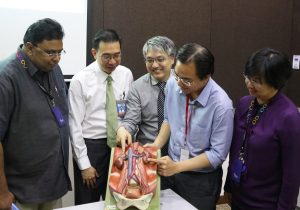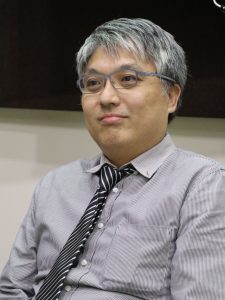[fusion_builder_container hundred_percent=”no” equal_height_columns=”no” menu_anchor=”” hide_on_mobile=”small-visibility,medium-visibility,large-visibility” class=”” id=”” background_color=”” background_image=”” background_position=”center center” background_repeat=”no-repeat” fade=”no” background_parallax=”none” parallax_speed=”0.3″ video_mp4=”” video_webm=”” video_ogv=”” video_url=”” video_aspect_ratio=”16:9″ video_loop=”yes” video_mute=”yes” overlay_color=”” overlay_opacity=”0.5″ video_preview_image=”” border_size=”” border_color=”” border_style=”solid” padding_top=”” padding_bottom=”” padding_left=”” padding_right=””][fusion_builder_row][fusion_builder_column type=”1_1″ layout=”1_1″ background_position=”left top” background_color=”” border_size=”” border_color=”” border_style=”solid” border_position=”all” spacing=”yes” background_image=”” background_repeat=”no-repeat” padding=”” margin_top=”0px” margin_bottom=”0px” class=”” id=”” animation_type=”” animation_speed=”0.3″ animation_direction=”left” hide_on_mobile=”small-visibility,medium-visibility,large-visibility” center_content=”no” last=”no” min_height=”” hover_type=”none” link=””][fusion_text] (Part One)
It can be done – with the right guidance, mindset and willpower.
When you hear the words “kidney failure”, your thoughts immediately turn to gloom – is there anything you can do to resolve this, how will you survive it, how will this impact the quality of your life, the list of concerns go on. Unfortunately, kidney disease is a long-term problem and it is not reversible. The good news is that with proper information and guidance, you can still maintain quality of your life, although there are lifestyle changes that need to be made. NECESSARY TREATMENT What is essential in managing end stage kidney disease? It is getting the right treatments, i.e. dialysis and medications. “Dialysis is a treatment that does some, but not all, of the things that are normally done by healthy kidneys,” says Dr Kong Wei Yen, Visiting Nephrologist at IMU Healthcare Dialysis Centre and Consultant Nephrologist at UKM Medical Centre.  “It is not a choice when the doctors tell you that you need long-term dialysis. It is a necessary treatment so that you can stay alive when the kidneys fail. Dialysis treatment usually makes the patient feel better after a few months. It improves the quality and increases the longevity of life for the majority of patients.” Patients with end stage kidney disease can opt for either one of the two types of dialysis – haemodialysis or peritoneal dialysis. “Kidneys – in layman terms – filter out the toxins and retain the necessary substances inside our body. However, when your kidneys fail, you will need artificial filters to clean out the toxins,” says Dr Kong.
“It is not a choice when the doctors tell you that you need long-term dialysis. It is a necessary treatment so that you can stay alive when the kidneys fail. Dialysis treatment usually makes the patient feel better after a few months. It improves the quality and increases the longevity of life for the majority of patients.” Patients with end stage kidney disease can opt for either one of the two types of dialysis – haemodialysis or peritoneal dialysis. “Kidneys – in layman terms – filter out the toxins and retain the necessary substances inside our body. However, when your kidneys fail, you will need artificial filters to clean out the toxins,” says Dr Kong.
Although long-term dialysis frequently improves the quality and increases the longevity of life for the majority of patients with end stage kidney disease, it is not guaranteed so. “When the kidneys fail, other organs might fail as well. When long-term dialysis is needed, many patients already have very serious health issues including diabetes, heart problems and so forth,” says Dr Kong.
Medication, therefore, plays a huge role too in management of the disease, especially for patients who have kidney disease due to diabetes. In Malaysia, one out of four patients with diabetes have kidney disease. In fact, six out of 10 patients who undergo dialysis are diabetic. 
Unfortunately, many patients are misinformed about medication, says Dr Loh Vooi Lee, Consultant Endocrinologist, IMU Healthcare. “High glucose levels actually damage the blood vessels in the kidney itself and when that happens, it destructs the architecture of the whole kidney. In addition, there is also blood pressure that needs to be controlled as it affects the blood vessels in the kidney too. One of the important myths is that the medication we prescribe for this will damage the kidneys,” he says. The truth instead? Medication actually protects the kidneys from further damage. “The dosage will be adjusted according to your condition but you must continue to take it at all times. It is not the cause of kidney disease but in fact, it is protective,” says Dr Loh. “That and healthy lifestyle habits – like quit smoking, limiting salt intake, exercise, a healthy weight and enough rest – are basic things you have to follow to keep the kidneys healthy.” [/fusion_text][fusion_text] YOU ARE WHAT YOU EAT When it comes to management of diseases, diet often plays a huge role. In the case of kidney disease, healthy eating takes on a special meaning, says Prof Winnie Chee Siew Swee, Department of Nutrition & Dietetics, International Medical University.
Approximately 40 to 50 per cent of patients on dialysis are actually malnourished as “the process of dialysis breaks down your body proteins, making you lose the nutrients that you need. It is important to make sure that you maintain your nutrition status as the term healthy eating changes when you have kidney disease and is on dialysis,” says Prof Chee. Many end stage kidney disease patients are told to cut down their protein intake as it accumulates waste product. This is true to a certain extent, says Prof Chee, but if you’re on dialysis, you actually need to do the opposite. “When they are diagnosed with kidney disease, patients are told to cut down their protein. So when they get onto their dialysis treatment, they are still afraid to eat protein when in fact they now need to increase their protein intake. This is because the dialysis process itself drives out the protein. The body breaks down the protein and gets dialysed out when you actually need it so you have to switch to a high protein diet,” says Prof Chee.
Other dietary precautions? Be careful of your selection of fruits and vegetables intake that may be high in potassium that can only be excreted from our kidneys. Also, many dialysis patients may sometimes experience constipation due to the limited amount of water they drink.
“We want patients to know that we are here to teach them how to enjoy their food in a safer manner that won’t give them problems,” says Prof Chee. This article is brought to you by IMU Healthcare. Related article: Living with End Stage Kidney Disease (Part 2). [/fusion_text][/fusion_builder_column][/fusion_builder_row][/fusion_builder_container]




No approved comments.